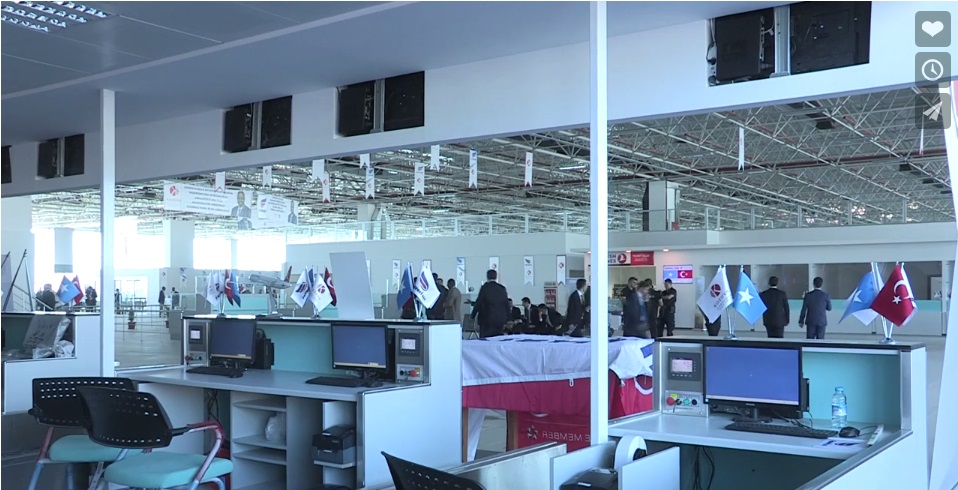Somalia is back and we are delighted to be a part of its ongoing renaissance

By SAMBA THIAM
The completion of the recent Article IV at the IMF Board on July 27, 2015—the first since 1989—marks an important step towards restoring the country’s ties with the IMF and rest of the international community.
It is also an important milestone for the consolidation of the Federal Government of Somalia (FGS), following its collapse in 1991 and two subsequent decades of civil war.
The road to rebuilding the Somali economy, as well as achieving sustainable and equitable growth and opportunities for the Somali people, will not be easy. But with the completion of the IMF’s first report on the country in more than a quarter-century, the path towards that recovery—and the challenges that still remain—are now much more clear.
Limited capacity
In the past two years, Somalia begun to recover from the civil war, which ravaged the country’s economy and decimated key state and economic institutions such as the Ministry of Finance, the Central Bank, and the National Statistics Office.
Despite this progress, these and many other public institutions remain severely hampered by very limited capacity and resources, especially the lack of trained staff to design and conduct economic policy.
Therefore, Somalia’s first task has been to rebuild governance and institutions, an area in which the international community has been helpful. Various donors and international organizations, such as the World Bank, the African Development Bank, and countries have also been providing support and technical assistance.
In February of this year, the IMF launched a three-year Multi-Donor Trust Fund for Capacity Building; three months earlier it established a resident representative office in Nairobi, Kenya to facilitate interactions with the authorities. This move was preceded by technical assistance missions in key areas of IMF expertise, including financial governance and accounting, fiscal management, budget preparation, expenditure control, bank supervision, and development of basic macroeconomic statistics.
This technical assistance has produced reliable estimates of key macroeconomic statistics as a preamble to the Article IV, the annual economic health check by the IMF of all of its members.
Public finance and national budgets
As a result of the government’s collapse in the 1990s, fiscal institutions in Somalia remain weak. After two decades of civil war and the complete absence of a central government authority, the FGS cannot collect the domestic revenue needed for financing basic needs. Therefore, Somalia still relies heavily on international support for revenue.
The IMF has devoted tremendous effort by assisting with the implementation of controls for expenditure commitments, particularly through the effective use of the Somalia Financial Management Information System, a budget recording system. In 2013, again with IMF assistance, the authorities compiled a budget which was approved by parliament.
A year later, the parliament approved a budget for 2015 with an optimistic forecast for revenue and donor grants; however this was later revised to reflect difficulties in mobilizing revenue (including direct donor support) and more realistic spending. Donor grants outside the budget are much more sizable than direct budget donor support.
Central Bank financial operations
Since Somalia resumed relations with the IMF in April, 2013, it has been providing comprehensive technical assistance in central banking, notably in: (i) developing financial governance and accounting practices; (ii) assisting in financial supervision and regulation; (iii) establishing a supervisory board of directors body through hands-on training; (iv) creating the first set of by-laws and organizational structure; and (v) preparing and implementing a memorandum of understanding that clarifies the roles and obligations of the central bank as the fiscal and financial agent of Somalia.
The significant progress in these areas has led to a direct increase in international support. The availability of the country’s economic information is also helping investors and the flow of remittances from the Somali diaspora. Somalia’s vibrant private sector has been leading economic growth and creating a well-connected trade network within the region, a factor that could lead to increased investment by diaspora returnees.
Looking ahead
Somalia still faces daunting challenges in rebuilding its economy and ensuring inclusive growth. Managing the vast needs of the Somali people will take time and will require coordinated support from different development agencies and bilateral supporters. Donor coordination is crucial for avoiding duplication and ensuring effective use of resources.
Somalia’s progress towards sound and accountable economic and financial governance is critical for the restoration of public confidence in the government and its ability to deliver basic services to its population.This will also require solid and accountable institutions, sound management of natural resources, development-oriented budgets and policies, a clear delineation of powers between the center and the regions, and a functional financial framework that enables the flow of remittances.
The IMF will continue to support Somalia by providing policy advice, technical assistance, and capacity building in its key areas of expertise. More broadly, overcoming governance constraints and setting up transparent procedures in all areas of government will help level the playing field and attract more domestic and foreign investment, which can foster sustained growth.
Additionally, the IMF will assist Somalia develop a policy package that—in due course, and with the support of its creditors—will enable the country to obtain debt relief and arrears clearance with the IMF, the World Bank, the African Development Bank, and other multilateral institutions and bilateral countries.
The writer is the IMF’s Resident Representative to Somalia